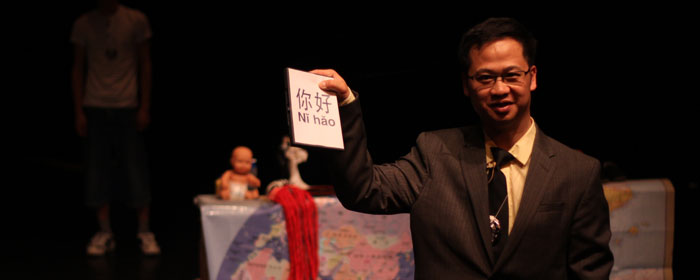
|
|
Edit Kaldor is an Amsterdam-based theatre maker and writer, recognized internationally as a unique voice in the contemporary theatre landscape. She works mostly with nonprofessional performers over extended periods of time and across various projects, merging documentary and fictional materials, and often addressing seemingly unspeakable experiences, such as statelessness, abuse, or the dying process. Her performances, which stretch considerably the boundaries of theatrical conventions, have been presented in over 30 countries in Europe, the Americas, Asia and North Africa. She frequently integrates in her work digital media and interfaces, focusing on the metaphorical and theatrical possibilities in the daily use of technology. Her current artistic research and work focuses on the intimacy in human-machine interactions and sociality with mobile devices and with GenAI. Born in Budapest, Edit Kaldor immigrated as a child to the United States, where she lived for ten years before moving back to Europe. She studied English Literature and Theatre at Columbia University in New York and at DasArts in Amsterdam. She had worked for years as dramaturge and video-maker with Peter Halasz (Squat theater/Love theater, New York), collaborating on numerous theatre performances and film scripts, before starting to write and direct her own pieces. Kaldor has taught and lectured at (performing) art academies and universities across Europe, and has led numerous workshops at theatres and festival, among them at the International Forum at the Berliner Festspiele and the Shanghai Biennale. She completed her doctoral artistic fellowship in 2023 in affiliation with theNorwegian Theatre Academ, with the research project The Many and the Form on new aesthetic and social practices for contemporary performance. She has designed and led the new MA Performing Arts as Critical Practice Program at Malmö Theatre Academy, Lund University since 2023. She is co-editor (together with Joe Kelleher) of the book Theatres of Powerlessness: Acts of Knowledge and the Performance of the Many, published in May 2025 by Bloomsbury Publishing, Methuen Drama in its Thinking through Theatre series . The press about her work:
Essential theatre – people in a room together considering what it can mean to be human.
Reviews Gate U.K.
|